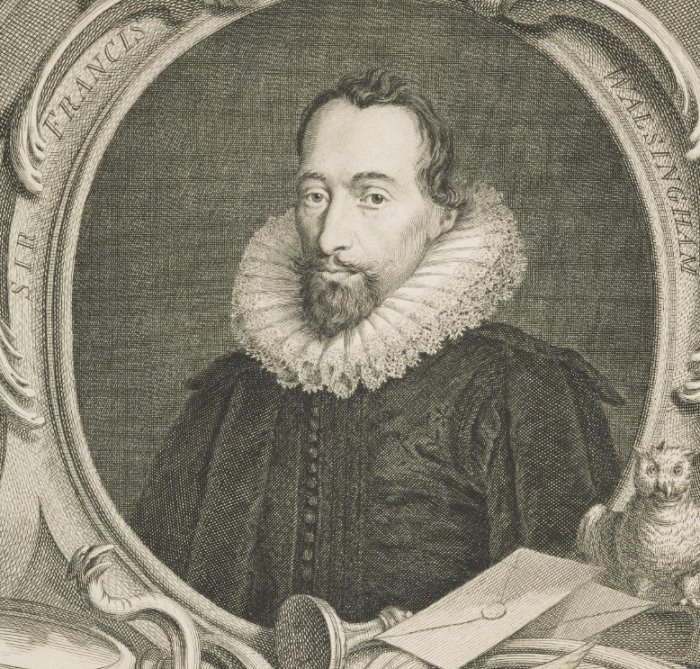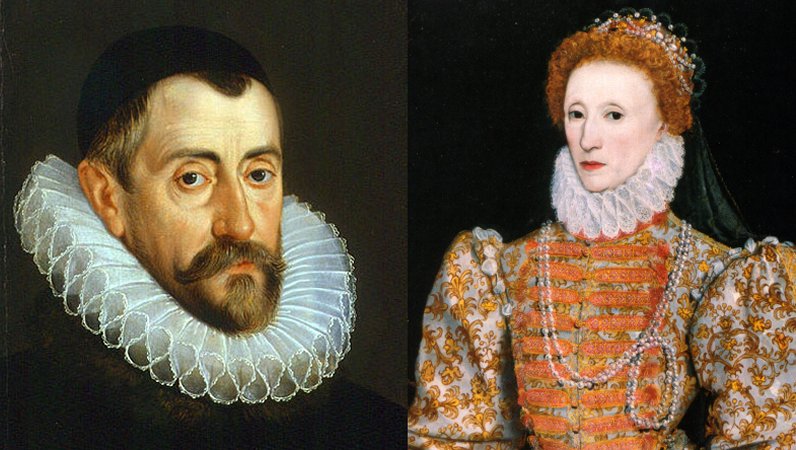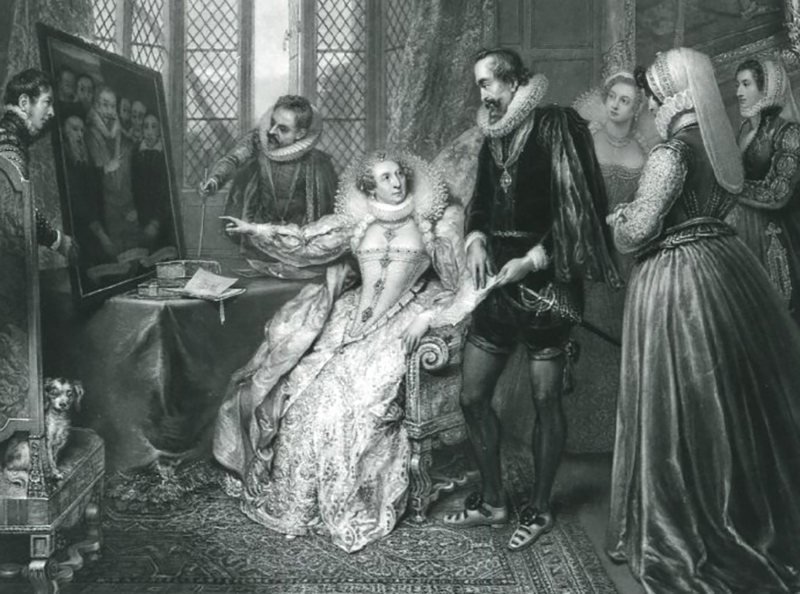Sir Francis Walsingham: Spymaster, Politician And Trusted Adviser To Queen Elizabeth I
A. Sutherland - AncientPages.com - Francis Walsingham was an English politician and most trusted adviser to Queen Elizabeth I (1533–1603). He served her faithfully for about 30 years, until the end of his life.
Sir Francis Walsingham, c 1530 - 1590. Secretary of State and diplomatist. Image credit: National Galleries Scotland.
Walsingham And His Apparatus Of Spies
He became the father of modern espionage thanks to an enormous arsenal of secret methods. He created this complicated apparatus; he developed a domestic and foreign spy network that contributed to the detection of several well-organized Catholic plots against Elisabeth I.
Sir Francis gathered intelligence regarding the Spanish Armada and also revealed a plot against Elisabeth involving Mary, Queen of Scots.
As a result, he effectively used his power to have Mary executed.
Sir Francis Walsingham was born in 1532, so he was a contemporary of Elizabeth I, but he died several years earlier than she did. He lived in an era when politics and religion were closely linked, and King Henry’s VIII’s influence was weakening.
Left: Sir Francis Walsingham made 1585 by John de Critz. Credit: Public Domain - Right: The "Darnley Portrait" of Elizabeth I of England. Public Domain
England was reborn as a Protestant kingdom where the king's commands were absolute, second only to God.
But it was not for long. When the king’s only son and successor, Edward VI died in 1553 after a short time on the throne (he was only 16), his Catholic sister Mary took over. Under Mary’s strict regime, England was forced back to Catholicism.
Protestants began to flee from Mary’s politics of purification, and so did Walsingham, who was forced to live in exile in Switzerland.
When Elizabeth I, a protestant, came to the throne, these 'exiles' (along with Walsingham) began to return to the country.
Sir Francis – Spymaster And Smart, Intelligent Politician
In the following years, he began to build a network of contacts in Europe and to form alliances with European Protestants and a strong relationship with other English ‘exiles’.
Francis Walsingham understood he had to protect Elisabeth because the young queen soon became the target of attackers who wanted to overthrow her and replace her with niece Mary I of Scotland (Maria Stuart).
At first, it was William Cecil (1520 – 1598) who was the chief advisor of Queen Elizabeth I and supervised the intelligence work, but gradually, as the plots against the Queen became more dangerous and difficult to reveal, Elisabeth turned to Walsingham.
Seventeenth-century engraving of Queen Elizabeth with William Cecil (left) and Francis Walsingham (right). Credit: Wellcome Images, CC BY 4.0
In 1559, he joined the Queen's first Parliament, which was still trying to unite the nation after the reign of Mary I. Formally, Walsingham was admitted to royal service only ten years from the beginning of Elizabeth's reign.
Walsingham, known as a tight-lipped and pious Puritan, was a smart and cautious politician who could anticipate and deduce with incredible precision. He supervised the internal and external policy as well as the religious policy of England.
His ambition was to expand English maritime power and colonization. Besides, he supported the unification of Scotland and England.
Creation Of An Advanced And Complex Network Of Spies
Walsingham was an expert in tracking down double agents and traitors.
Walsingham established an intelligence service for the Queen by linking spies at various locations across the European continent.
As a passionate Protestant, he let his spies investigate their respective countries' views of Elisabeth, because he wanted to know whether there were any conspiracies against Elisabeth.
The Queen’s spymaster trusted no one, so even the Pope in Rome was interrogated.
His Spies Were Usually Young And Educated
Walsingham created his own school for spies and used a unique number combination to identify each announcement or statement. He used all sorts of methods, including torture and propaganda.
In 1583, his spy network functioned perfectly. For example, it revealed the so-called Throckmorton Plot, one of a series of attempts by English Roman Catholics to remove Elizabeth I of England and replace her with Mary, Queen of Scots (then held under house arrest in England).
Queen Elizabeth attended by Sir Francis Walsingham, a mezzotint from 1830 by John Charles Bromley. Credit: Public Domain
In the Throckmorton Plot (financed by Spain) a conspirator was involved. His name was Sir Francis Throckmorton, and he was a cousin of Bess Throckmorton, a lady in waiting to Queen Elizabeth.
Sir Walsingham had many skilled cryptographers, too. Thomas Phellippes, his secretary, was one of them. Today, he is considered England's first true cryptanalyst and an expert decipherer of captured papers.
Phellippes spied abroad and was employed by William Cecil - Lord Burghley. It was Phellippes, who deciphered the secret messages showing that Mary Stuart was an active plotter in the conspiracy against Elisabeth I.
Francis Walsingham believed that Mary Queen of Scots would continue to be behind many similar conspiracies as long as she lived. Therefore she had to die.
She was beheaded in February 1587.
Three years later, Walsingham died in 1590. He achieved much and was ahead of his time in his work. He had built England's first real intelligence and security service; he created a national and international spy network.
Thanks to him, Queen Elizabeth I could die of natural causes instead of being murdered.
Written by – A. Sutherland - AncientPages.com Senior Staff Writer
Copyright © AncientPages.com All rights reserved. This material may not be published, broadcast, rewritten or redistributed in whole or part without the express written permission of AncientPages.com
Expand for referencesReferences:
Harrison G.B. An Elizabethan Journal, Volym 1
Budiansky S. Her Majesty's Spymaster
A Dictionary of World History (edited by Edmund Wright,)
More From Ancient Pages
-
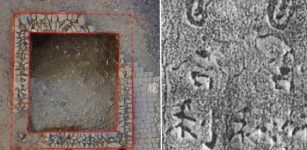 Ancient Temple Complex Dated To Nanzhao Kingdom Unearthed In Southwest China
Archaeology | Jan 26, 2021
Ancient Temple Complex Dated To Nanzhao Kingdom Unearthed In Southwest China
Archaeology | Jan 26, 2021 -
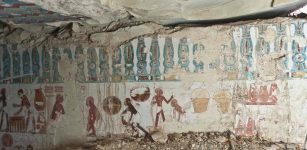 An Intact 4,000-Year-Old Burial Chamber Found In Aswan
Archaeology | Mar 28, 2017
An Intact 4,000-Year-Old Burial Chamber Found In Aswan
Archaeology | Mar 28, 2017 -
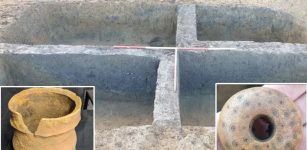 Unknown Saxon Village And Bronze Age Artifacts Found Near Ely, Cambridgeshire
Archaeology | Sep 18, 2023
Unknown Saxon Village And Bronze Age Artifacts Found Near Ely, Cambridgeshire
Archaeology | Sep 18, 2023 -
 Unorthodox Ancient ‘Out-Of-This World’ Carvings Were Found And Destroyed – Discovery – Part 1
Featured Stories | Aug 10, 2020
Unorthodox Ancient ‘Out-Of-This World’ Carvings Were Found And Destroyed – Discovery – Part 1
Featured Stories | Aug 10, 2020 -
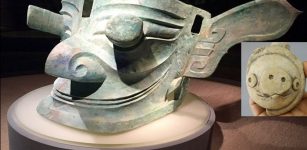 Old Clay Pig Figurine And A 5,000-Year-Old Settlement Found Near Mysterious Sanxingdui Ruins, China
Archaeology | Jul 30, 2020
Old Clay Pig Figurine And A 5,000-Year-Old Settlement Found Near Mysterious Sanxingdui Ruins, China
Archaeology | Jul 30, 2020 -
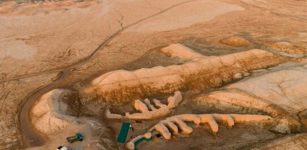 Sumerians Built A Huge ‘Anti-Drought Machine’ To Save Ancient City Of Girsu From Destruction
Ancient Technology | Nov 23, 2023
Sumerians Built A Huge ‘Anti-Drought Machine’ To Save Ancient City Of Girsu From Destruction
Ancient Technology | Nov 23, 2023 -
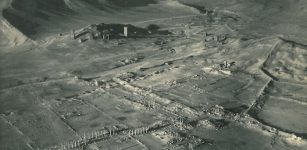 Food Insecurity Led To An International Conflict 2,000 Years Ago
Archaeology | Sep 22, 2022
Food Insecurity Led To An International Conflict 2,000 Years Ago
Archaeology | Sep 22, 2022 -
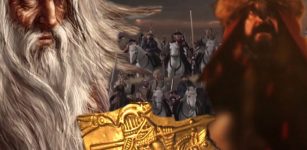 Surprising Connection Between Norse God Odin And Attila The Hun Revealed
Featured Stories | Dec 8, 2020
Surprising Connection Between Norse God Odin And Attila The Hun Revealed
Featured Stories | Dec 8, 2020 -
 Handshaking Is An Ancient Tradition – When, Where And Why Did We Start To Clasp Hands?
Ancient History Facts | Aug 30, 2019
Handshaking Is An Ancient Tradition – When, Where And Why Did We Start To Clasp Hands?
Ancient History Facts | Aug 30, 2019 -
 Tomb Of Last Ruler Of A Sunken Kingdom Remains An Ancient Mystery
Featured Stories | Mar 24, 2021
Tomb Of Last Ruler Of A Sunken Kingdom Remains An Ancient Mystery
Featured Stories | Mar 24, 2021 -
 First Pompeiian Human Genome Sequenced Fron An Individual Who Died After The Eruption Of Mount Vesuvius In 79 C.E
Archaeology | May 26, 2022
First Pompeiian Human Genome Sequenced Fron An Individual Who Died After The Eruption Of Mount Vesuvius In 79 C.E
Archaeology | May 26, 2022 -
 Ancient Maya People Used Volcanic Ash To Build Pyramids When Huge Eruption Occurred
Archaeology | Sep 22, 2021
Ancient Maya People Used Volcanic Ash To Build Pyramids When Huge Eruption Occurred
Archaeology | Sep 22, 2021 -
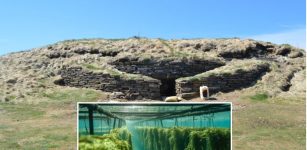 Ancient Europeans Ate Seaweed And Freshwater Plants – Evidence Found
Archaeology | Oct 17, 2023
Ancient Europeans Ate Seaweed And Freshwater Plants – Evidence Found
Archaeology | Oct 17, 2023 -
 Scottish Settler’s Ominous Encounter With A Mysterious Being In West Virginia
Featured Stories | Mar 18, 2024
Scottish Settler’s Ominous Encounter With A Mysterious Being In West Virginia
Featured Stories | Mar 18, 2024 -
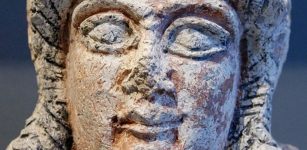 Ancient Mesopotamian City Discovered And Identified As Xarab-i Kilashin
Archaeology | Jul 11, 2017
Ancient Mesopotamian City Discovered And Identified As Xarab-i Kilashin
Archaeology | Jul 11, 2017 -
 Is A Viking Ship Hidden In The Colorado Desert?
Featured Stories | Jan 8, 2018
Is A Viking Ship Hidden In The Colorado Desert?
Featured Stories | Jan 8, 2018 -
 House Of Dragons – Stories And British History That Inspired The Beasts Of Westeros
Featured Stories | Sep 18, 2022
House Of Dragons – Stories And British History That Inspired The Beasts Of Westeros
Featured Stories | Sep 18, 2022 -
 Smuggled 1,800-Year-Old Lydian Atonement Inscription Sent Back To Turkey By Italy
Artifacts | Sep 28, 2020
Smuggled 1,800-Year-Old Lydian Atonement Inscription Sent Back To Turkey By Italy
Artifacts | Sep 28, 2020 -
 Researchers Find An Elusive European Ancestor Of Lager Yeast In Ireland
Archaeology | Dec 14, 2022
Researchers Find An Elusive European Ancestor Of Lager Yeast In Ireland
Archaeology | Dec 14, 2022 -
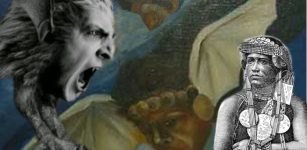 Chonchon ‘Tue Tue’ Bird With Human Head Brought Bad Omens To Places It Haunted In Beliefs Of Mapuche Indians
Featured Stories | Mar 12, 2024
Chonchon ‘Tue Tue’ Bird With Human Head Brought Bad Omens To Places It Haunted In Beliefs Of Mapuche Indians
Featured Stories | Mar 12, 2024

